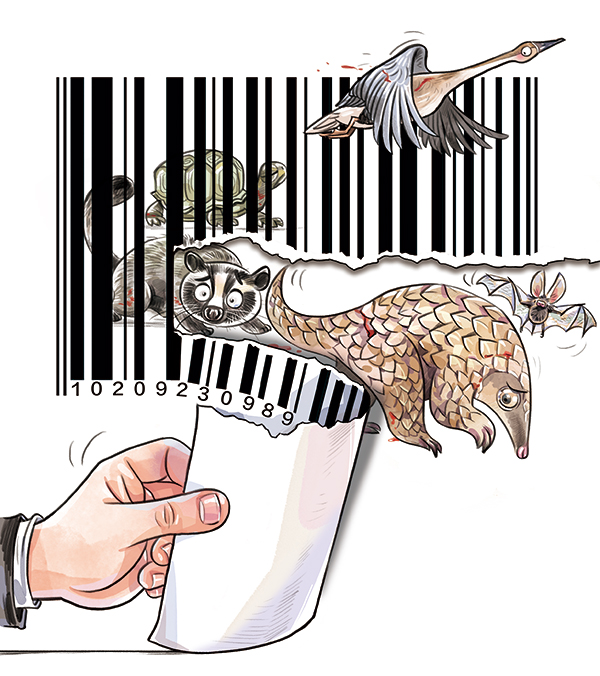Chinese internet companies join fight against illegal wildlife trade


Three more Chinese internet companies have joined a global battle against the illegal wildlife trade, pledging to offer new technologies and apply greater social influence to help fight increasingly rampant online wildlife crimes around the world.
On Tuesday, mobile game developer 37 Interactive Entertainment and online antique trading platforms 997788.com and Zhangyan became the latest members of the Coalition to End Wildlife Trafficking Online, a global network of e-commerce, technology and social media companies, bringing the tally of the coalition members to 39.
Ivonne Higuero, secretary-general of the Convention on International Trade in Endangered Species of Wild Fauna and Flora, said the alliance of over 30 of the world's biggest internet firms and committed champions of conservation is a critical partnership, one that can help forge a strong practical response to the threat to global biodiversity.
"The work of Chinese firms has also been reinforced at the national level with various legislative efforts and the initiative of government agencies to address wildlife trafficking both on and offline in recent years," she added.
Since the establishment of the coalition in 2018, its members, which include leading Chinese internet companies such as Alibaba, Baidu and Tencent as well as international counterparts Microsoft, Google, eBay, Instagram and others, have removed or blocked over 3 million listings for endangered and threatened species and associated products from their online platforms.
Internet search giant Baidu said that in the face of mounting difficulties in combating wildlife cybercrime, it has given full play to new technologies including image recognition, big data and machine learning and has launched an artificial intelligence-powered product to reduce and eliminate illegal online information.
It said that last year it has deleted roughly 263,000 pieces of information and automatically blocked over 1.4 million advertisements for illegal wildlife products.
In addition to blocking or removing illegal information related to the wildlife trade, Chinese companies have also launched user engagement initiatives to promote wildlife conservation that have reached millions of internet users.
Alibaba's Taobao platform, for instance, launched an automatic pop-up that educates users searching for prohibited species products on the impacts of trafficking, and provides an in-app interactive, virtual scenario that enables users to understand the issues affecting endangered species.
In 2019, Taobao received reports of illegal wildlife trade information from 43,000 users. The platform's user engagement initiative attracted 3 million clicks, educating a critical user-base about illegal wildlife trade.
Though illegal wildlife trade online is constantly evolving-with sellers transitioning to different platforms, using evolving search words and deploying avoidance tactics-Chinese players will help the coalition to reach its goal of reducing online trafficking on coalition members' platforms by 80 percent by the end of this year, according to the Coalition to End Wildlife Trafficking Online.




































